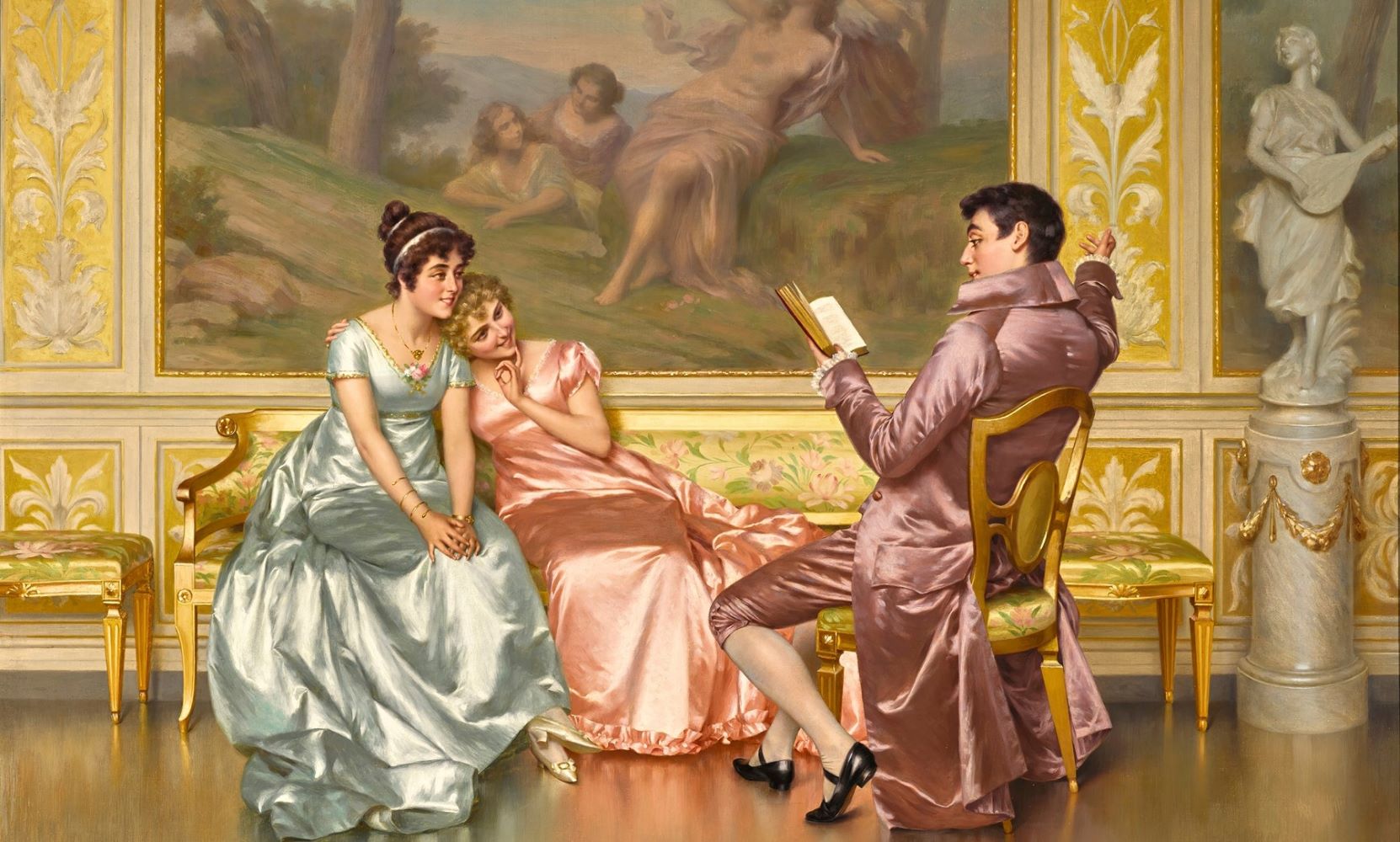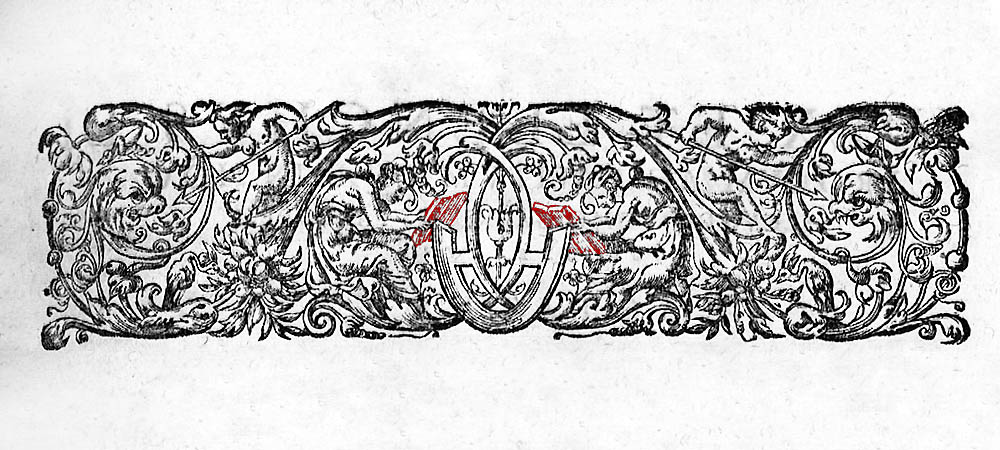Focus on the Smaller Scale
Analysts and pundits lavish a disproportionate amount of attention on Society—intoned with a capital S. We worry about the direction that Society is going, we pontificate about the changes that the twentieth century worked upon Society, and we speculate about the impact these changes will have on private morality. At the university where I earned my Ph.D., we required philosophy majors to take a course labeled “Individual and Society.”
I say this attention is disproportionate, however, because it causes us to lose sight of the smaller forms of association that play a much larger role in our real lived experience. We go to schools, we work at jobs, and we come home to families where we hope to find some measure of belonging. The degree of impact that my place of work has upon me as an individual is thousands of times larger than the impact that Society has upon me as an abstract totality. Indeed, we can state this as a general law: A community’s influence over an individual tends to be inversely proportional to its level of abstraction. The more removed by its generality from the concrete realities of a person’s life, the more weak and inchoate will the influence be. Thus the social dynamics of my parish exercise a greater influence upon my spiritual life than the social dynamics of contemporary Catholicism, which in turn exercise a greater influence than those of Christianity as a whole. Thankfully, I remain mostly unaware of just what goes on in the far-flung reaches of that abstraction.
I propose, therefore, that theorists would better spend their time if they turned their attention away from the highest levels of abstraction and focused their powers of analysis instead upon smaller, more concrete forms of association. Russell Kirk called these smaller forms of association “mediating institutions,” and his point was to emphasize the way that these institutions come between the top-level political power of the nation-state and the individual citizen.1 I want to borrow this term but apply it in a broader way than political mediation alone. These communities not only come between the individual and the state; they come between the individual and capital-S Society, and it is only through them that the individual has any contact with the higher levels of abstraction. The kinds of community I have in mind accomplish this mediation in at least two distinct ways.
First, mediating institutions are epistemic mediators. That is, they provide a host of filtration and interpretation mechanisms to the individual. The individual only knows about and knows how to interpret the broader, more abstract layers of society through his life within smaller communities. Without them, the naked individual simply has no tools whereby he can make sense of what is going on in the country as a whole, let alone the totality of our geopolitical situation or the entire sweep of history. To describe this function, I will steal another term, this time from John Verveke, and call these smaller associations “sense-making communities.”
How would I even know about, let alone make sense of, the failure of Silicon Valley Bank or its effects without a concrete reporting institution such as the Wall Street Journal or concrete contact with friends at work who are themselves informed by other concrete institutions? The Wall Street Journal has an office, a staff with individual names, and a recognizable company ethos. The Economy as an abstract whole does not. After informing me about the collapse of Silicon Valley Bank, the Wall Street Journal and my circle of friends at the office also provide me with the epistemic framework to make sense of what has happened. We never hear raw data. Events are presented along with an interpretation and evaluation of those events. Only by living within networked communities that constantly present us with information and simultaneously provide us with an apparatus for interpreting that information can we as individuals form any opinions at all.
Second, mediating institutions are ethical mediators. That is, the communities in which we live shape and form the way we live by providing the basic contours of the kind of life that is possible and the attitudes we can expect from our neighbors in response to the way we choose to live. Ethics, properly speaking, only happens within a concrete community because only a concrete community can have an ethos, that is, a communally established way of living and acting. The individual can only have an ethos in a secondary sense by the way he reacts to and chooses to live within the ethos of the various communities of which he is a part. By doing so, the individual does his small part to shape the ongoing, organic development of the community. The relationship here is reciprocal and additive. The community ethos provides the basic environment and foundation for an individual’s way of living, and the individual’s way of living contributes along with his neighbors to establish the ethos of the community as it develops.
As Aristotle observed, man is a political animal. In the limit cases of feral children (none of which have been truly and completely separated from human community), we see the devastating effects that isolation has upon the individual. Such children fail to develop even the basic capacities characteristic of a properly human existence and often die before maturity. An individual person learns how to be a person by participating in the life of communities alongside other persons. Again, man is not a political animal by participating directly in a capital-P, capital-S Political Society. He is a political animal by participating in the life of St. Louis, the life of his military regiment, or the life of his model train club. All of these overlapping communities embody a particular set of habitual judgements, habitual forms of speech, habitual ways of awarding prestige, and habitual ways of sanctioning misbehavior.

As both an epistemic and an ethical mediator, one particular form of concrete community rises above the rest as enormously more important than all the others. Man is a political animal, but he is first of all a familial animal. Even when the family is absent in a person’s upbringing this very absence is one of the most significant facts of his life. Even when a son rejects everything that his father stands for and makes his way alone in the world, this very rejection is a response to the fundamental role his father has played and must be among the chief elements in a faithful biography. More normally, the family functions as the mediating institution par excellence in a person’s upbringing.
Through life in the family, a child first hears about many things and also learns what attitudes toward those things are appropriate. A child learns by sitting beside his father’s recliner that the Steelers are to be loved and the Bengals to be hated. He can run through the starting lineup of the Steelers by name, and he can quote detailed statistics about their performance. More generally, he learns that watching sports in a recliner is simply what one does on a Sunday afternoon and that football is something that all normal men and a few women are enthusiastic about. In another family, a daughter grows up entirely ignorant about football, supposing that the World Series is the highest achievement in that sport, but knows much about the finer points of film and cinematography. She can name several films from the sixties featuring Cary Grant or Audrey Hepburn, and at a young age, she makes sophisticated judgments about their acting. Still another family teaches its children how to quote verbatim all the political slogans of their favored radio outrage mongers. The three sons all know the names of many congressmen, political pundits, and news outlets. More importantly, they know exactly which tone of voice to use when speaking about each.
In the family, the child learns how to respond to a huge range of values both through explicit instruction and, more frequently, through implicit example. The family goes to church on Sunday morning, and the child learns thereby what kind of response is due to the sacred. He listens to the explicit words of his mother’s instruction and the homily of the priest, but more impactfully, he watches closely and internalizes the deportment of his mother and older brother who organize the local worship. The weekly repetition of saccharine smiles and dopey guitar accompanied by recorder and bongos does more to his soul than the catechism. It is here that he learns not merely simple, individual actions or bits of information but the entire shape of a way of life, a whole posture and way of moving that includes both body and soul. This develops organically by imitation, by admiration, by mockery, or by showing off.
The family sets the boundaries for the kinds of behaviors that are acceptable and unacceptable and enforces those boundaries through a variety of sanctions and rewards. A daughter in one family learns that tearing the pages in a book is tantamount to murder because books are something precious. A son in another learns that he can get away with little lies because they are glossed over and generally accepted. Frequently the sanctions on behavior are explicit punishments, but they also involve simply awarding or withholding approval in more or less overt ways. Sometimes the background dynamics of a family unintentionally incentivize certain behaviors just by making them easier than the alternatives. For example, a family that is in the habit of leaving the television running in the background may find that they are also in the habit of letting unfinished conversations easily drop or fade away without ever intending to train this conversational habit.
More difficult to notice because it is so frequently taken for granted in the background, the family also establishes the very horizon of possibility for what kinds of life can be undertaken by the child. While it may be normal in one family for a child to think of becoming an artist, this would not even occur to the child of another family because it has no place within their horizon of possibility. No one they know is an artist. They would not know how to begin becoming an artist. They have no reference point for how an artist might make money and so advance beyond being a mere hobbyist. If asked, they would, of course, know that such a thing is possible and that other people do in fact become artists, but it does not enter into the range of concrete options that they consider for their own lives.
What I have said about families can be extended in analogous and less potent ways to many other concrete forms of mediating institutions. People are enculturated epistemically and ethically in their apartment buildings, at the farmers market, at the library story hour where they bring their children, by the YouTube channels to which they subscribe, or at the local bar. The family, however, is almost always the most impactful mediating institution in a person’s life by a large margin. The family, therefore, should occupy far more philosophical attention than it does and it should form the paradigm for understanding the ways that small communities shape us as individuals.
Russell Kirk, The Conservative Mind (Gateway Editions, 1985).↩︎
